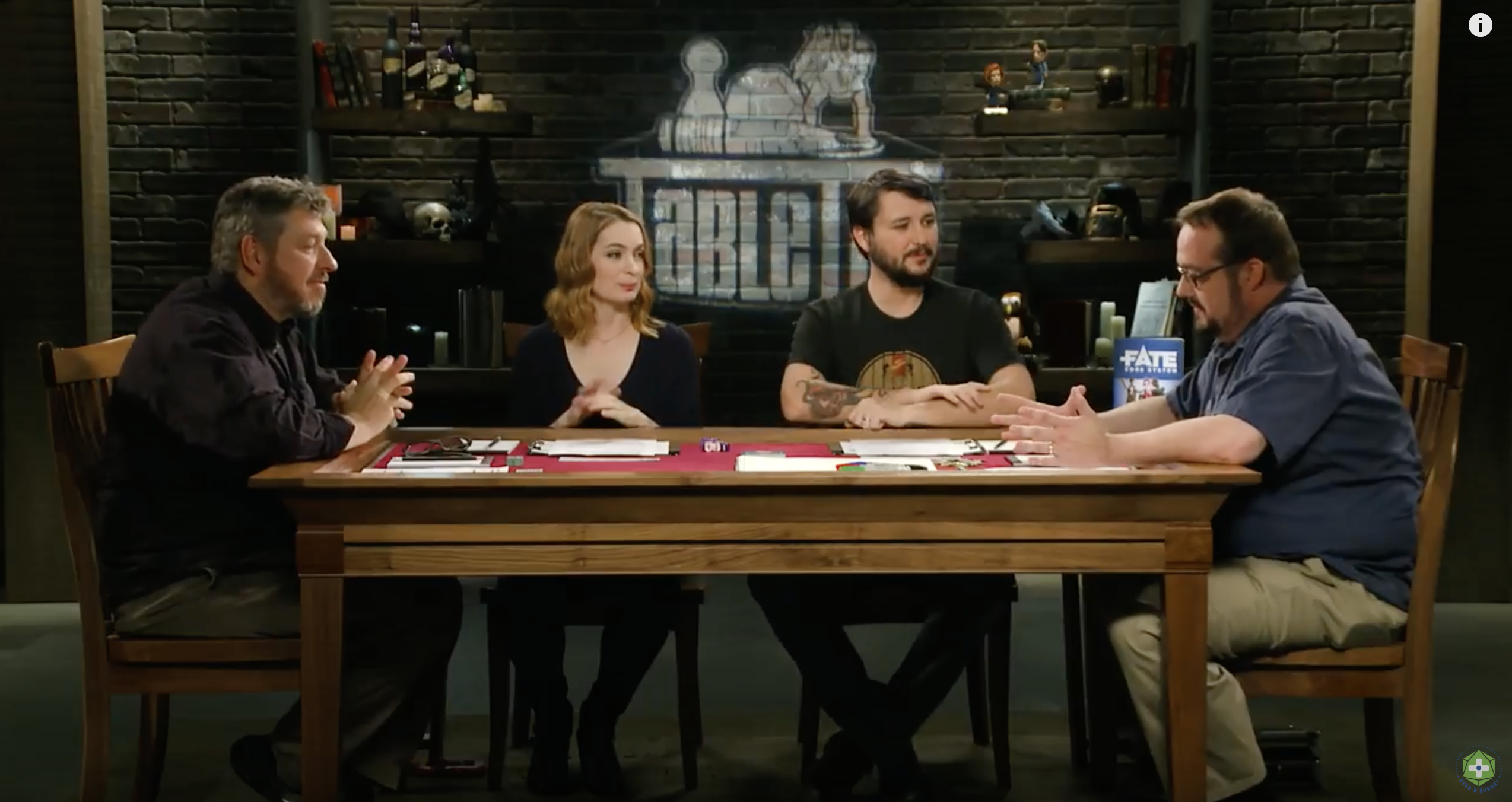For instance in D&D when a player says "I push him to the side and kick out and break his leg" I tell explain that she can use a shove action to knock them prone with one attack and then use their second attack at advantage. Both times this was requested the players opted to just attack twice because the prone attack followed by a non weapon attack was very wimpy compared to two long sword attacks.
In Fate when this request was made again (same person) It was treated as a normal attack, she rolled very well and the NPC checked their In Peril condition and Snap went their leg!
At least those are my experiences with both systems.
I don't have time at the moment to get into this at length, but this is exactly what I mean about FATE tends to suggest that resolution doesn't matter.
Isn't it reasonable that play ground antics like trying to pushing someone over and then kick them is a lot less lethal of an action than attacking with intent with a murderous weapon like a longsword? If you were facing a lethal enemy, which tactic would you prefer that they attempt? I have no doubt in my mind about which attack I'd be less able to defend against, and which would threaten my life more severely. Why would you try that when you have a bloody longsword in your hand?
There are circumstances when it makes sense, I had a player in a D&D game dropkick a zombie off a cliff, which was a much more effective attack than trying to hack at it with a longsword. But then, in that case, it's also obvious that it actually is.
Moreover, you can absolutely see this playing out in the game in the video repeatedly, as John adopts an approach to the game that involves straight forward attacks that highly leverage the rules and don't give the GM any room to mess with the attack itself, while Wil and Felicia repeatedly try more complexly described attacks that don't leverage the rules much and their complex description of these attacks just end up prompting the GM to improvise just how they've gotten burned in response to the extra details that they added. Despite Wil wanting to play a combat centric character, his character really doesn't come off nearly as cool in combat as John's, because the GM continues to match his moves with what to all appearances are improvised responses. In fact, even when Wil succeeds on his dice rolls, there is a tendency to see 'success with complications results' precisely because of his attempts to do things like "I push him to the side and kick out and break his leg".
Real narrative force requires that the player be able to predict to some extent what the result of their proposition actually is, and have a sense with how reliable it might be. In FATE, a player's 'stunt' is an example of that sort of narrative package. But in general, compared to say a D&D spell-caster, FATE characters actually have very little narrative force IMO. Players have great freedom with regard to constructing their propositions, but all those propositions are generally as meaningless as FATE's success track. The vast majority of the character is actually passive with respect to the narration because it's dependent solely on the GM's whim. While it might make sense in the context of FATE that the result of legendary +12 success on a fight check is not only that you defeat the foe, but you get dragged off to hell on the GM's whim for 'reasons' that would amount to GM metagaming in any other context, don't tell me that however cool that scene is, it is actually a representation of a player having narrative force rather than GM railroading.


